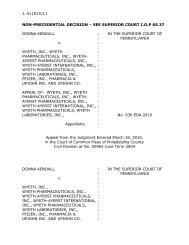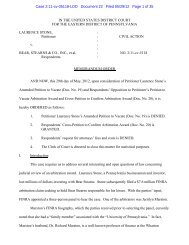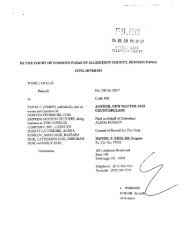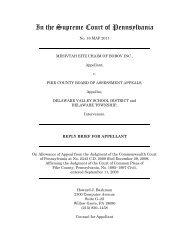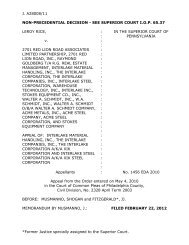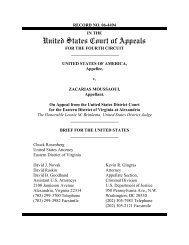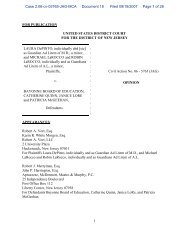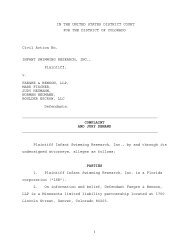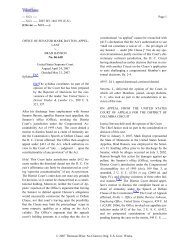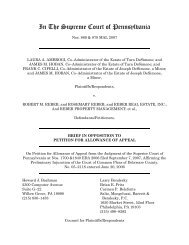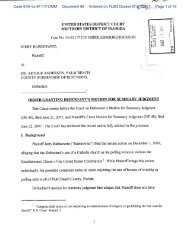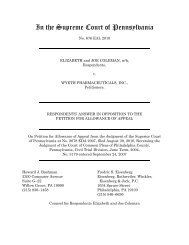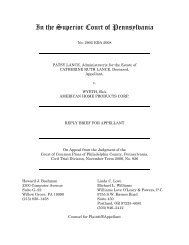petition for rehearing en banc - How Appealing
petition for rehearing en banc - How Appealing
petition for rehearing en banc - How Appealing
Create successful ePaper yourself
Turn your PDF publications into a flip-book with our unique Google optimized e-Paper software.
Case: 07-4080 Docum<strong>en</strong>t: 108 Filed: 10/29/2010 Pages: 15<br />
Nos. 07-4080, 08-1030, 08-1072, 08-1106 7<br />
than inflammatory; the evid<strong>en</strong>ce of such fraud was a<br />
subset of the evid<strong>en</strong>ce of pecuniary fraud; and the evid<strong>en</strong>ce<br />
of obstruction of justice was very strong. No reasonable<br />
jury could have acquitted Black of obstruction<br />
if only it had not be<strong>en</strong> instructed on honest-services<br />
fraud. It would still have be<strong>en</strong> the case that Black had<br />
known he was being investigated <strong>for</strong> fraud and could<br />
not have known that years later the Supreme Court<br />
would invalidate one of the fraud charges. And if he were<br />
clairvoyant, he would have known that the other fraud<br />
charge—pecuniary fraud—would not be invalidated.<br />
At argum<strong>en</strong>t Black’s lawyer posed the following<br />
amusing hypothetical in an attempt to use the error in<br />
the fraud instruction to undermine his cli<strong>en</strong>t’s conviction<br />
<strong>for</strong> obstruction of justice: Suppose the Justice Departm<strong>en</strong>t<br />
launches an investigation of a man suspected of<br />
having an affair with Minnie Mouse, and while the<br />
investigation is under way the man burns his Disney<br />
comics. Although an “official investigation” was p<strong>en</strong>ding<br />
(and capable of being obstructed) wh<strong>en</strong> he destroyed<br />
the comics, this could not be construed as an obstruction<br />
of justice, because the crime under investigation did not<br />
exist and there<strong>for</strong>e he could not have acted with the<br />
corrupt int<strong>en</strong>t necessary <strong>for</strong> guilt of obstruction. Black’s<br />
lawyer hoped by this hypothetical case to persuade us<br />
that the jury would have interpreted his cli<strong>en</strong>t’s int<strong>en</strong>t<br />
in removing the docum<strong>en</strong>ts differ<strong>en</strong>tly had it known<br />
that the honest-services fraud under investigation at<br />
the time was not a crime; it would have be<strong>en</strong> more<br />
willing to credit his innoc<strong>en</strong>t explanation <strong>for</strong> his action<br />
and conclude that he had not acted with corrupt int<strong>en</strong>t.<br />
But Black was not under investigation <strong>for</strong> an obviously



